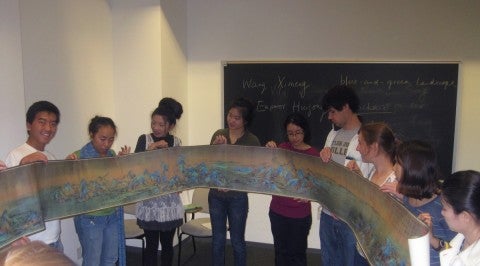Research Areas
Consciousness Studies and Theories of Subjectivity • Aesthetic Theory • Globalization Theory
Philip Wood majored in Anthropology, English, Logic & Metaphysics, and Psychology at Cape Town University, before doing Honors in English. He then did an MA in English and French literature at the University of York (UK), and doctoral work in French literature and philosophy at Yale. At Rice, he serves on the steering committee of the European Studies program and he is a core faculty member of the program in Cinema and Media Studies.
Wood, who has received an award from the American Council of Learned Societies, is the author of Understanding Sartre (1990), an introductory volume for the general reader. He is currently working on several projects involving forms of conscious experience that suspend concepts of a self or personal identity as these have been presented in very different domains—from aesthetic theory, religious mysticism, phenomenology and post-structuralism to current research in the neurosciences and the philosophy of mind. He suggests that these forms of experience provide a space of freedom in relation to the functionally adapted subjectivities and identity politics of contemporary neoliberalism. Sidestepping ethnocentrism and superficial forms of cultural relativism, this approach enables a strong defense of the humanities within a context of globalization. Against this background, Wood engages with contemporary debates about "universalism" and "universals" (e.g. the work of Etienne Balibar, Jacques Derrida and François Jullien) and he develops a critique of the notion of history or culture as the absolute horizon of thought.
Wood has taught in the areas of ancient and modern philosophy, French literature from the nineteenth century to the present, French cinema, North and West African and Caribbean novels and cinema in French between 1960 and the present, the challenges of trans-cultural comparative gestures relative to non-Western cultures, and major works of the European canon from Homer to Dante.


